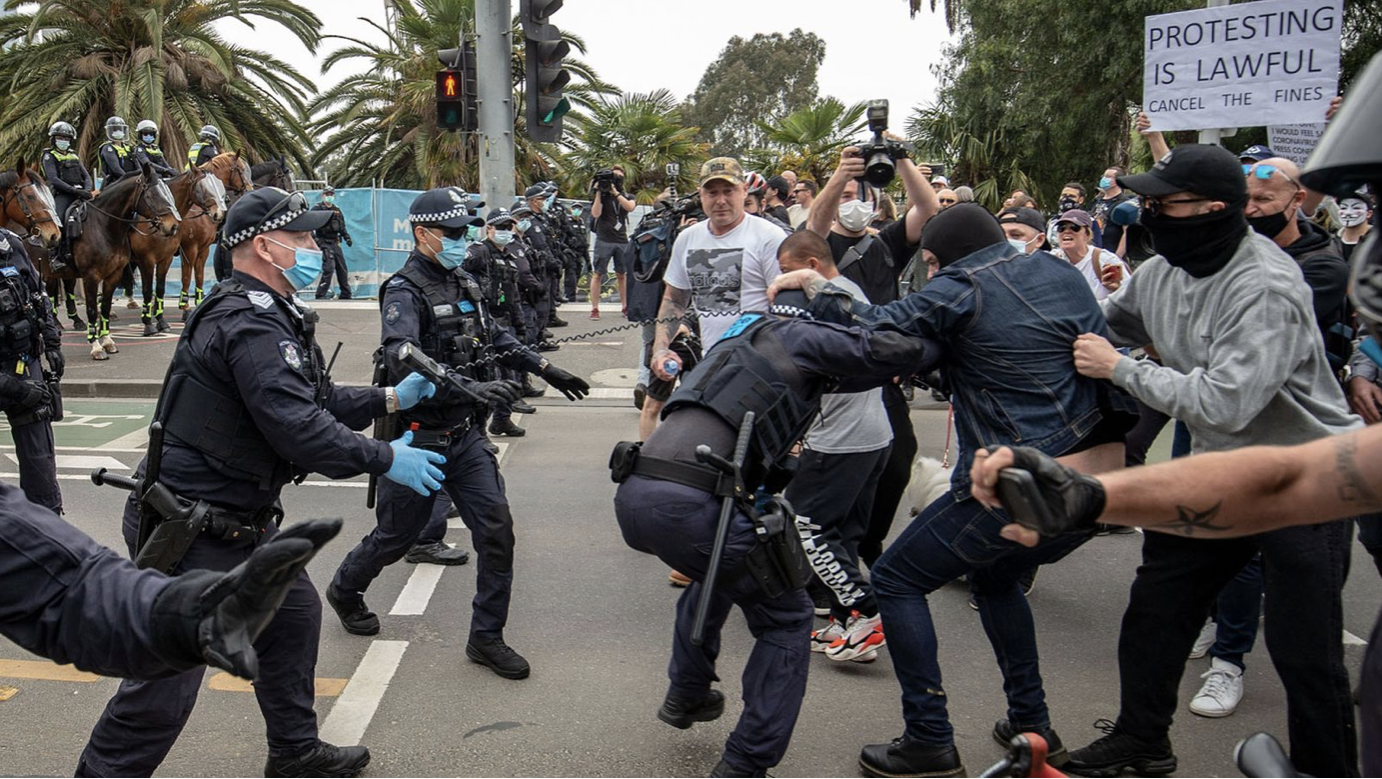Share This Article
It is reported that a man in his 20’s has allegedly assaulted two police officers during an altercation in Victoria’s anti-lockdown protest on 23 October last year.
Police report that 2 men were being arrested by the two police officers during the protest at the Shrine of Remembrance when the alleged assault took occurred.
The two police officers sustained minor injuries as a result.
Police are still trying to find one of the men involved in the police assault during the public riot.
The man that police believe may be able to assist in their investigation is described to be in in early to mid 20’s, brown hair, Caucasian, medium build. Police believe he was wearing black shorts, tights, grey and black hood jacket and damaged sunglasses.
During the protest in Melbourne’s CBD, there were hundreds of protesters facing off with police. As police were present to enforce the COVID directions, sixteen people were arrested and ninety-six on-the-spot fines were issues on the day.
The protest was described by the then Premier Daniel Andrews as “shameful” and “unlawful”.
Assault Police During Public Disorder Offences in NSW
In NSW, assaulting a police officer carries heavy criminal penalties. The maximum penalties are more severe if a person assaults police during a public disorder.
Normally, the maximum penalty for assaulting police occasioning actual bodily harm to the officer attracts up to 7-years imprisonment, with a standard non-parole period of 3-years.
But, assaulting a police officer causing actual bodily harm during a public disorder, carries up to 9-years imprisonment with a standard non-parole period of 3-years, pursuant to section 60(2A) of the Crimes Act 1900 (NSW).
If the officer who is assaulted was not acting in the execution of his/her duty as a police officer, then the prosecution will not be able to prove the offence according to law.
Some of the defences to this charge include self-defence, necessity, duress, causation or where the officer acted illegally.
If a police officer acts outside of his/her police powers, resulting in the other person being harmed, arrested, or imprisoned, that person may be able to sue for compensation.
Have a question? Get in touch with our Sydney criminal lawyers today.
This article has been written by our own in-house assault lawyer Sydney team.









